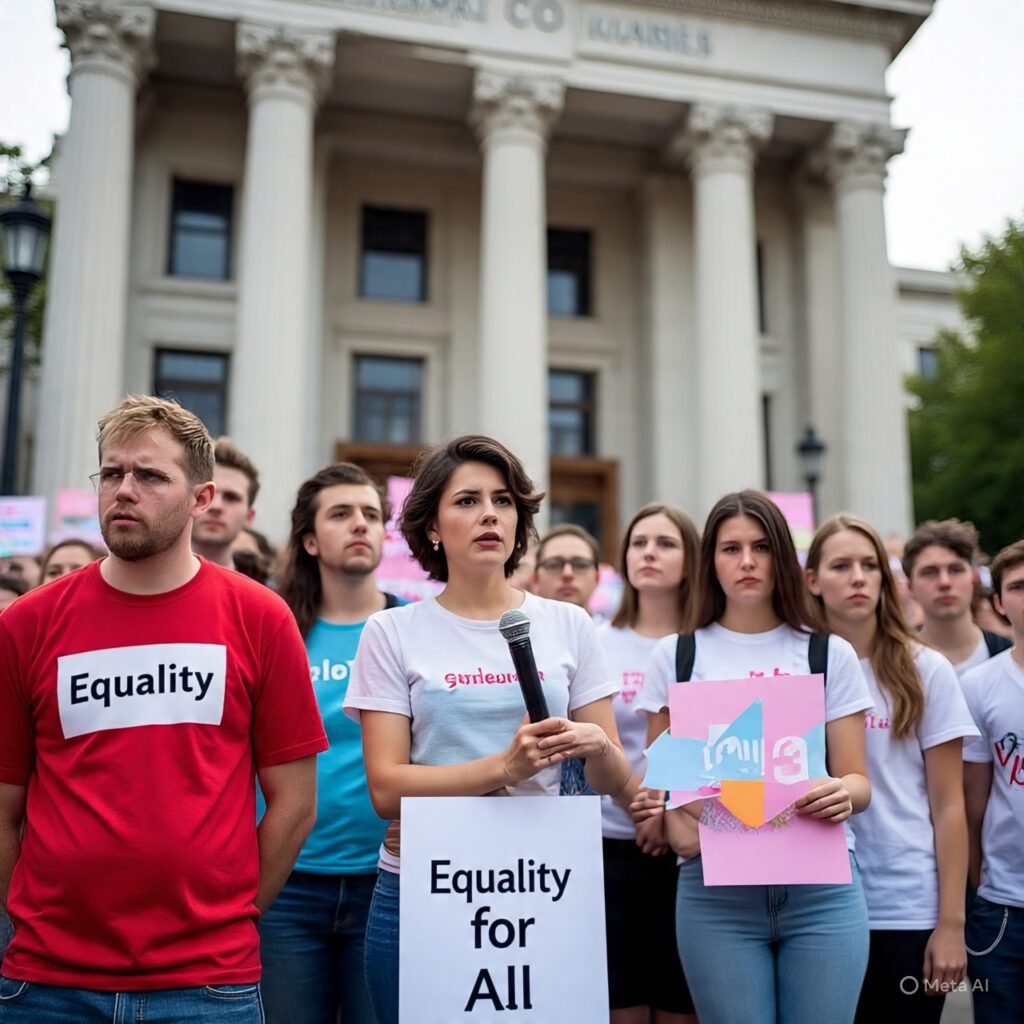- 2. Gender Fluidity and Transgender Rights
Part 2 of the Unfiltered Series: What Islam Says About the West’s Most Controversial Women’s Issues
Disclaimer:
This article discusses complex and sensitive issues around gender identity. Islamic views vary among scholars and schools of thought. This post offers a general overview and should not be considered a fatwa. For specific guidance, readers should consult qualified Islamic scholars.
The Western Narrative: Identity Is Fluid
In much of the modern Western world, gender identity is increasingly seen as a spectrum, not a binary. From preferred pronouns to gender-affirming surgeries, individuals are encouraged to choose their identity regardless of biological sex.
The conversation isn’t just academic—it’s deeply personal and increasingly political. Schools, governments, sports bodies, and social media platforms are grappling with how to accommodate gender transitions and fluidity.
But where does Islam stand?
Islam’s Starting Point: Gender Is a Divine Assignment
In Islamic theology, the foundational belief is that:
“Indeed, We created you from a male and a female…”
— Surah Al-Hujurat (49:13)
Islam recognizes the biological distinction between men and women as part of Allah’s divine design—not a social construct.
But What About Intersex (Khunthā) Individuals?
Islamic scholars historically acknowledged individuals born with ambiguous sexual characteristics, known as khunthā (intersex). Fiqh (Islamic jurisprudence) has detailed guidelines for their inclusion in laws of inheritance, prayer lines, and social roles—with dignity and compassion, not erasure.
👉 This shows that Islam can accommodate biological complexity, but does it extend to identity-based changes like being transgender?
Gender Dysphoria: Illness or Identity?
Some modern Muslim scholars differentiate between:
- Medical intersex conditions (e.g. androgen insensitivity, congenital adrenal hyperplasia), where corrective surgery may be allowed,
- Gender dysphoria—a psychological condition where a person feels their gender does not match their biological sex.
The key debate:
Is gender dysphoria a medical condition to treat, or a valid identity to affirm?
Transgenderism in Islam: A Conservative Stance
Most traditional scholars agree on the following:
- Changing one’s sex without a medical anomaly is considered altering Allah’s creation (
taghyīr khalq Allāh), which is strongly discouraged: “…and I will command them to change the creation of Allah…”
— Surah An-Nisa (4:119) - The Prophet ﷺ cursed men who imitate women and women who imitate men. “Allah has cursed men who imitate women and women who imitate men.”
— Sahih Bukhari (5885)
However…
🇮🇷 What About the Iran Fatwa?
Surprisingly, in 1987, Ayatollah Khomeini of Iran issued a fatwa permitting sex reassignment surgery for transgender individuals with clinically verified gender dysphoria. Today, Iran has one of the highest numbers of gender-affirming surgeries in the world.
But this is not a Sunni consensus. Many Sunni scholars and muftis remain cautious or reject this position unless there’s a biological intersex condition involved.
The Human Side: Struggles Beyond Rulings
It’s easy to get lost in fatwas, but behind every debate is a human being—often rejected by family, society, or the mosque.
Islam offers rules, but also compassion. A person with sincere struggles should not be mocked or exiled. The Prophet ﷺ was gentle with the emotionally and mentally distressed, even those who committed major sins. He looked at intentions, pain, and circumstances.
“Verily, Allah is more merciful to His servant than a mother to her child.”
— Sahih Bukhari
Can You Be Muslim and Trans?
This is a deeply personal question. Some Muslims who identify as transgender continue to pray, fast, and seek connection with Allah. Others feel forced to choose between their faith and identity.
From an Islamic legal lens:
- Identifying as trans may not invalidate one’s belief in Allah,
- But actions that permanently alter the body without necessity remain controversial.
A Path Forward: Between Black-and-White
Islam’s moral compass is firm, but its application has always been nuanced:
- Don’t affirm what Allah has not affirmed,
- But also don’t oppress someone struggling with identity and pain.
For the everyday Muslim:
- Don’t play the role of judge and jury.
- Approach with rahmah (mercy), not rage.
Final Thoughts
Islam may not fully align with the West’s “be whoever you want” ethos. But it does say:
“Let there be no compulsion in religion…”
— Surah Al-Baqarah (2:256)
And:
“We do not burden a soul more than it can bear.”
— Surah Al-Baqarah (2:286)
Whether cisgender or transgender, every soul is on a journey—with struggles Allah sees even when the world doesn’t.


